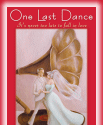

| / |
| · · · · · |
 |

|
|||||
|
|
Foreword
At the time he was a widower, living with a "significant other," a woman he'd become reacquainted with while touring with Maude (1883-1993): She Grew Up with the Country, his biography/memoir about his mother, written by him at 88 and published by Calliope Press in 1996. The way Dad tells it, "Ann invaded my home on the pretext that I autograph her copy of Maude. We talked of past experiences at The Columbus Dispatch, where we'd both worked. Then she threw her arms around me and suggested we share the lonely moments of our lives together!" For parts of two years they shared living quarters, expenses, and chores, saw movies, and even went to dances when, as Dad once laughed, she wasn't "too weak to hold me up." Dad wrote much of this novel between media engagements, book signings, and hospitalizations. He more than believed in the book. He was consumed by it. He kept plugging away at it despite hip replacement and sinus surgeries, congestive heart failure, and pneumonia that wouldn't go away. He had a great deal he wanted to say about the landscape of aging, and what it means to be in your nineties with the body failing and the mind and spirit still wanting it all. And he wanted to say it as humorously as possible. Blind from macular degeneration, he was forced to dictate the last chapters of the first draft. The three of us planned to work together on the second draft, our now sightless Dad revising as we read aloud to him, chapter by chapter. For some time, he'd mulled over how the book should end, upbeat or down or in between. He decided he wanted a positive ending and was going to dictate it to us when we three next met. He insisted we finish the book if he couldn't. We promised. Dad died two weeks before we were to start revisions. He was 95. The two main characters were 100% there. We fleshed out a few others. We completed the ending using his notes. If we reached an impasse, we reread his manuscript and found the clues we needed to continue. Dad's presence was palpable. He was our guide and our inspiration. This is his story, the way he wanted to tell it. "There's no such thing as being too old," Dad once told an interviewer. "Life is for living, no matter what our age or condition. If we can sing, we should sing. If we can write, we should write. We should always be in search of a new experience, always be ready to commit ourselves to a new interest." He lived this philosophy right up to the day of his death, February 3, 2001.
|
||||||||
| Calliope Press | Other Great Mardo Williams Books | |
|
© 2004-2025 Calliope Press. All rights reserved. For more information call 1-212-564-5068. |
Maude (1883-1993): She Grew Up With the Country Great-Grandpa Fussy and the Little Puckerdoodles Butcher Of Dreams The Five O’Clock Follies |
|